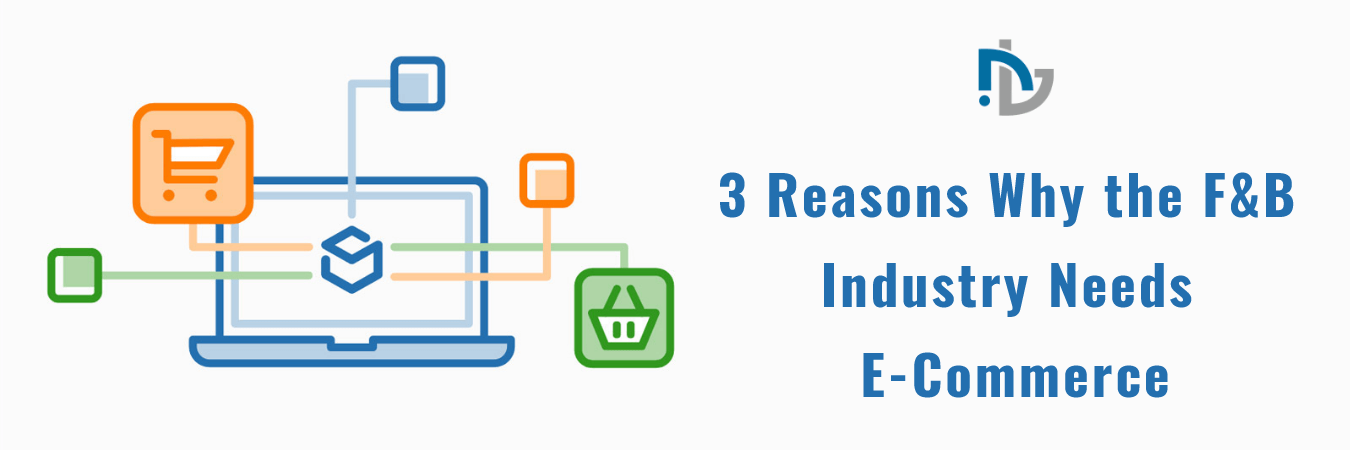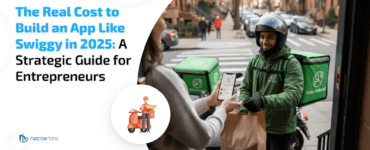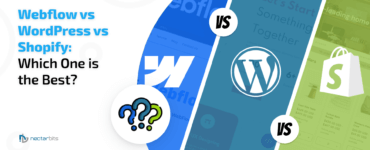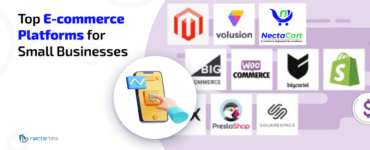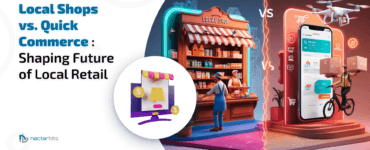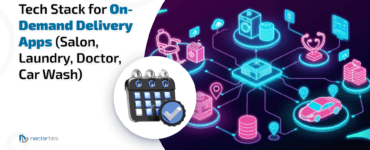The coronavirus pandemic brought a whirlwind of a year for the food and beverage industry. But after much trial and error and many closings and reopenings, business owners are finally settling into a new industry reality — one that’s more digital than ever.
Initially, many food and beverage (F&B) brands chose to adopt e-commerce out of necessity. Forced closures around the world called for rapid innovation, which kept thousands of businesses alive. Now, e-commerce solutions are proving to be incredibly useful tools that can help businesses improve their return on investment (ROI) for years to come.
The adoption of e-commerce is unlikely to slow down. Even in sectors of the F&B industry that largely rely on offline workflows and client experiences — for example, restaurants, bars, and food delivery services — going digital is now a must for modern-level efficiency.
Here are three reasons why the F&B industry needs e-commerce to operate, complete with examples of how e-commerce can help you thrive.
F&B E-Commerce Revenue Is Rising Fast
The food and beverage industry saw its biggest annual increase in e-commerce revenue between 2019 and 2020. F&B e-commerce is valued at over $18 billion. While the level of growth is expected to slow down a bit, researchers don’t predict an end to the growth through at least 2025.
If one thing’s clear, it’s that the demand for more F&B e-commerce is there. It’s coming from grocery stores looking for easier ways to stock their inventory, consumers looking for more convenient ways to order food, and more.
Read More: How Can You Make A Bundle With E-commerce On demand Grocery App Platform?
As we move into the future, the demand will only skew more toward online buying.
Keeping up with this new demand requires each sector of the F&B industry to use e-commerce tools — and work with e-commerce professionals — to transition to and improve their online or hybrid operations.
Adopting E-Commerce Tools
So how can e-commerce tools help F&B leaders better manage their businesses? They streamline your workflows and aid you in your resource planning.
For example, let’s say you run a restaurant. Developing a website on Shopify, an e-commerce platform that can support a point-of-sale system, gives you the chance to connect your online and offline operations. Whether your customer purchases through your website or in-store, your inventory will update in real-time. You’ll always know when a re-stock is needed.
Many e-commerce platforms even offer instant analytics. You can gain insights about when you’re making the most sales and where. This way, you can best schedule out shifts, budget for your inventory, and generally, avoid any bottlenecks in your operations.
F&B companies that implement e-commerce tools are productive and efficient.

Embracing Your New E-Commerce Operations
Hiring or contracting skilled professionals can help members of the F&B industry reap even more benefits from your move into e-commerce. With the right set of people supporting your operations, your digital transformation will be much smoother. You’ll have the skills needed to handle the integration of e-commerce tools and build your brand’s longevity.
Here are some types of professionals F&B brands can consider recruiting and how they amplify the value of e-commerce:
- Web developers, designers, and SEO experts can help you build a fully optimized website and online presence, so you can maximize conversions.
- A sales manager can help you analyze the sales data you collect through your e-commerce platform to improve ROI from future promotions.
- An enterprise resource planning (ERP) manager can help you manage the implementation of online ERP tools, as well as the team members who keep those tools running in your day-to-day.
E-Commerce Optimizes the Supply Chain
National brands like Uber Eats, Amazon Fresh, and Drizzly have boosted the demand for quick, convenient fulfillment of food and beverage orders. But traditional operating processes — such as taking takeout orders via phone and or manually forwarding orders to a distribution center — aren’t built to keep up with this level of demand.
Plus, modern marketing increases the odds of products or services going viral. If F&B businesses don’t pair their digital marketing strategies with e-commerce, they risk selling out of products with hundreds of customers still interested or delayed shipping that creates poor customer experiences.
Read more: Why Ecommerce Company invest in On-Demand Delivery App Solution?
Reducing supply chain bottlenecks requires e-commerce and, therefore, online commerce-adjacent tools. With solutions like ERP systems, your F&B brand can achieve modern-level efficiency.
ERP Systems Changing the Game
We already mentioned the benefits of hiring enterprise resource planning managers, but the ERP solutions they can help implement are worth exploring a bit further.
Moving to e-commerce is already a smart move that can widen your customer base. Using ERP solutions like Microsoft Dynamics on top of that can help you improve your position in the F&B market by centralizing your e-commerce processes and data. They help you quickly identify where you can reduce waste, offer better product availability and delivery date estimates, track demand patterns, and make better use of all the information you have.
Read more : Ride Sharing Business Grappling With COVID-19 In Europe?
Food delivery platforms, for instance, can use data to be more proactive about managing demand and supply by finding alternative suppliers when high demand is expected.
Going digital with ERP systems and similar e-commerce technologies allows for more accurate, real-time data — even in the fast-paced F&B market of the 21st century. This leads to effective strategies and accurate business projections.
E-Commerce Allows Automation to Occur
If the power of ERP solutions isn’t enough to convince you why the F&B industry needs e-commerce, know that e-commerce will make room for cost-reducing automation. The rest of the world is already moving toward more automated processes, so F&B brands must adapt to stay competitive.
Going digital enables F&B companies to stop wasting time on repetitive tasks and better utilize their employees’ skills. Teams can become more strategic and rapidly innovate — even if crises like the pandemic challenge the industry in the future.
E-Commerce Creates Better Customer Experiences
As your business starts functioning better internally, your customers will feel the difference. But e-commerce doesn’t just have a passive impact on the customer experience. It gives you the tools you need to actively create better customer experiences, too.
Given that the majority of customers already prefer the online shopping experience, moving into e-commerce is a no-brainer move. In a market where convenience is in high demand, food and beverage brands can’t ignore the need for online shopping any longer.
E-commerce also offers many new opportunities to build loyalty. For example, many fast food restaurants are now developing apps for customers, which act as convenient hubs for clipping coupons, earning loyalty points, and loading cash for future purchases.
The Power of Digital Experiences
So how does creating these powerful customer experiences help your business internally? It’s all about the data you collect.
Moving onto e-commerce allows you to learn more about customer behavior than ever before. From what categories they’re browsing and what products they’re buying to how often they’re checking for deals, maintaining your e-commerce platforms gives you valuable data that can reshape your strategy.
Data boosts the sophistication of demand forecasts, cutting costs within your operations, and allows you to get better ROI from your marketing and promotions.
Start on Your Path Toward E-Commerce
Modern demands require modern solutions. For the food and beverage industry, selling on an e-commerce platform is just the first step. To keep up with demand, improve resource planning, and create better customer experiences, F&B brands must use e-commerce tools to improve their internal workflows and data collection. You can stay competitive by committing to digital today.



